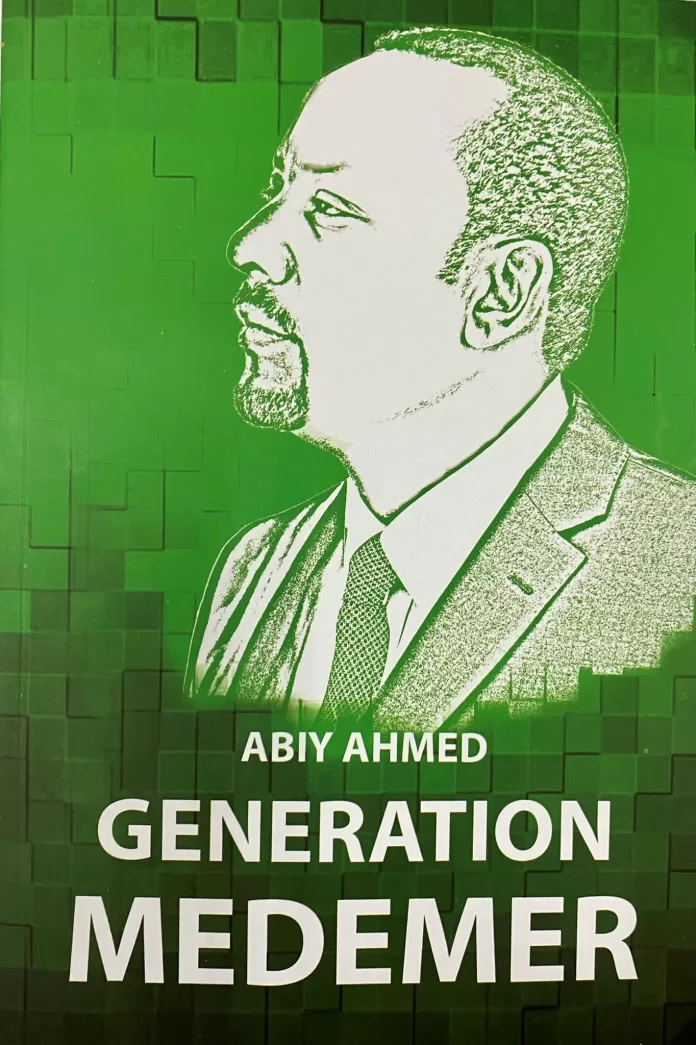The emerging concentrations of the international intellectual community on the unexplored dimensions of literature have resulted in a rise of diverse publications concerning the changing dynamics of different regions. Majority authors have preferred to express their viewpoints on various inter-state and intra-state issues of African nations while highlighting the increasing significance of the African continent in contemporary world politics. Akin to a few other academic accounts, the recently published book of Abiy Ahmed has inaugurated a new debate on the role of African generations in shaping the future of their states, where Ethiopia is an exception. The Ethiopian society has been selected in this book as an appropriate case study to validate the central argument in the book because the author has attempted to describe his scholarly position on the role of future generations in shaping a better future for the country. The author has expertise in African regional politics in general and Ethiopian state affairs in particular. While expressing his intellectual insight into Ethiopian society, he has attempted to focus on the future generations of Ethiopia. As a prominent African politician and the current Prime Minister of Ethiopia, His Excellency Abiy Ahmed belongs to the Prosperity Party and has cultivated a good reputation internationally by introducing his vision of international peace and cooperation. The international community has formally recognized the author’s national and regional efforts and he was awarded the 2019 Nobel Peace Prize for his pragmatic approach to resolving territorial conflicts with neighbouring states. He has expressed his political vision in the book Generation Medemer, which resolves around the idea of unity or togetherness. The Medemer is an Amharic word, and its literal meaning conveys the concept of coming together for collective improvement and a better future for the nation. In the description of Abiy Ahmed, this word of Amharic language refers to the broader practices of cooperative values consisting of peace, unity, and togetherness under a comprehensive concept of national cohesion and peaceful coexistence in the country.

The ten chapters of the book are divided into three parts designed to provide an inclusive understanding of the Prime Minister’s approach to dealing with the societal challenges of Ethiopia. The debate in all chapters attempt to highlight the significance of Medemer philosophy for Ethiopian society, and the author has tried to underline specific measures to integrate this philosophy with the country’s mainstream governance system. The first part of the book starts the debate in the initial three chapters about the conceptual foundations of Generation and its relevance with Ethiopian society, whereas the next set of three chapters in the second part of the book talks about the nature, characteristics, and evolution of generation in Ethiopian society. The last part of the book presents a fascinating account of various arguments focusing on the Medemer as a Generation-Building Formula and how it is associated with the country’s future. In this way, all chapters underline the need for social unity and national cohesion, which could help overcome the challenges of divided ethnic and religious orientations of Ethiopian society. The debate in all chapters is aligned with the political, social, and economic synchronization of Ethiopia with the concept of Medemer, and the support of the Prime Minister to the concept proved that the leading members of the Federal Parliamentary Assembly of Ethiopia believe that there is a need to emphasize the future generations of the country. The author supported the Medemer generation, which is different from the previous generations and could adequately be treated as the owner of the country (p. 167). In other words, a brief analysis of the book’s arguments legitimated the vision of Ethiopian leaders in giving clear directions to the future generation for the greater vision of the country’s social prosperity, political stability, and economic development. This book serves as a call for collective action and mutual understanding among the diverse communities of Ethiopia because it maps the route towards a peaceful and integrated future of the country. The author’s arguments inspire hope and actions across generations and borders, which could contribute to a sustainable and prosperous future guided by respect, understanding, and shared purpose of the Ethiopian nation.
There are several interesting arguments in the book that enhanced the standing of the author in his peer circles, parallel to highlighting the exceptional content of this book in the existing African literature. Akin to various incomparable features of the Ethiopian nation, the focus of the author on future generations is a topic needing more appropriate scholarly attention in the Ethiopian intellectual community. In this way, it is appropriate to maintain that this book is an essential read for everyone interested in the dynamics of social reform and national unity in any country that has ethnic and religious variations at the societal level. Moreover, it is a valuable resource for those studying African politics, conflict resolution, and governance. Ethiopians around the world, as well as those in the country, may find the book resonates with their cultural and national identity, offering a blueprint for unity and progress. Anyone looking to understand more about Ethiopia’s recent history and its path forward would find this book enlightening.





